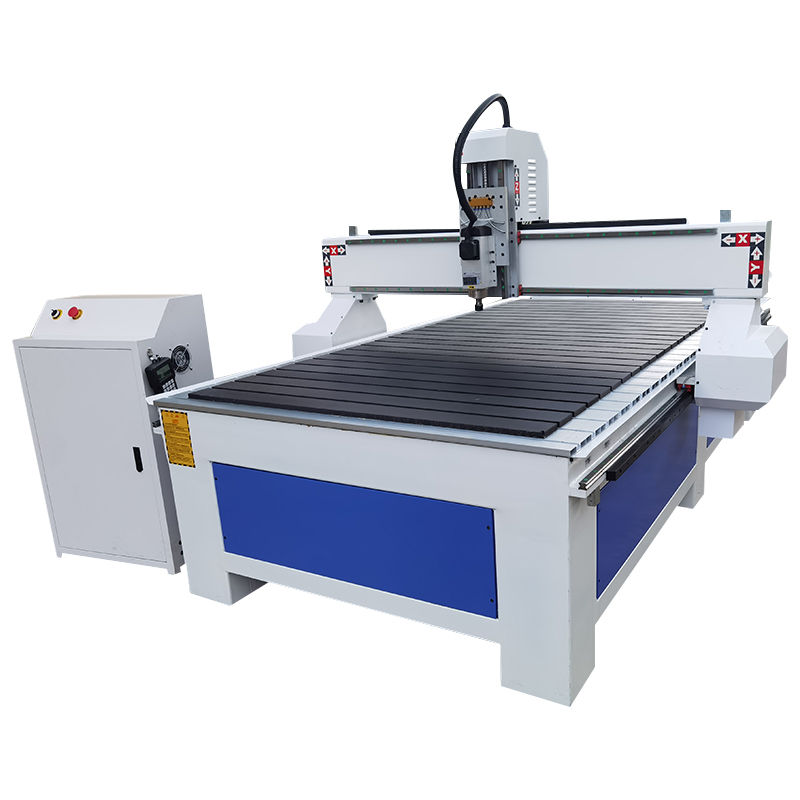How to Choose the Right CNC Router: A Comprehensive Guide
- 新春 石
- Nov 14, 2024
- 3 min read
Updated: Nov 17, 2024
Selecting a CNC router is a crucial decision for anyone looking to enhance their woodworking or fabrication projects, whether you are a hobbyist or a professional. With a wide variety of models and specifications available, it’s essential to understand the factors that influence your choice. This guide will cover key aspects such as material types, maximum material size, precision requirements, and budget considerations.

1. Identify the Materials You Will Work With
The first step in choosing a CNC router is to determine the types of materials you plan to process. CNC routers are versatile but vary in their compatibility with different materials:
- Wood: Most CNC routers excel in cutting and engraving softwoods and hardwoods. If your projects are primarily wood-based, ensure that the machine can handle the thickness and density of the woods you intend to use.
For example, the RENXI-TECH 1325 Woodworking CNC Router Machine is more suitable for this project.

- Plastics: Consider routers that can efficiently cut or engrave materials like acrylic, PVC, or polycarbonate. Different plastics may require specific bits and speeds for optimal results.
- Composites: If you’re working with materials like MDF or plywood, ensure the router is equipped to handle these composites effectively.
- Metals: For machining metals, you will need a more robust CNC router with higher torque and appropriate bed and tooling, as not all routers are designed for this purpose.
For example, the RENXI-TECH Stone/Metal CNC Router Machine is more suitable for this project.

Understanding your material needs can significantly narrow down your choices.
2. Consider Maximum Material Size
The size of the materials you wish to work with is another critical component in your decision-making process. CNC routers come in various worktable sizes, which dictate the maximum dimensions of the materials you can use:
- Small Projects: If your projects mostly involve small components, a compact router with a smaller work area may be sufficient.
For example, the RENXI-TECH 6090 Woodworking CNC Router Machine is more suitable for this project.

- Large Projects: For larger applications, like furniture making or large signage, consider a router with a larger worktable. Measure the dimensions of the materials you intend to work with and ensure that the router has a suitable working area.
For example, the RENXI-TECH 2030 Woodworking CNC Router Machine is more suitable for this project.
3. Define Precision and Accuracy Requirements
The precision of your CNC router will directly influence the quality of your finished products. Different projects require varying levels of detail:
- Basic Cuts: If your work revolves around simple cuts or basic designs, a machine with moderate precision may be adequate.
- Intricate Designs: For detailed work, such as engraving or crafting complex shapes, invest in a CNC router that offers high precision and accuracy. Look for specifications like repeatability and resolution to ensure it meets your project requirements.
For example, the RENXI-TECH 1325/1530 ATC CNC Router Machine is more suitable for this project.

4. Evaluate Your Budget
Budget is often a significant factor when it comes to selecting a CNC router. The price range can vary greatly, so it’s essential to set a clear budget:
- Initial Purchase Price: Determine how much you are willing to invest in the CNC router itself.
- Operating Costs: Factor in ongoing expenses such as maintenance, material costs, tooling, and software.
- Return on Investment (ROI): If you are purchasing the router for business purposes, consider how quickly you can recover your investment based on the efficiency and volume of work you intend to produce.
5. Consider Customer Support and Warranty
Lastly, ensure that the manufacturer offers solid customer support and a comprehensive warranty. This can be essential if you encounter any issues or require assistance with setup and maintenance. A responsive support team can help you troubleshoot problems and keep your CNC operations running smoothly.
Conclusion
Choosing the right CNC router involves careful consideration of various factors, including material compatibility, maximum material size, precision requirements, and budget constraints. By clearly defining your needs and conducting thorough research, you can make an informed decision that enhances your woodworking or fabrication capabilities. Take your time, compare options, and choose a CNC router that aligns with your goals and will serve you well for years to come.
By directly choosing RENXI-TECH, you will be able to find the most suitable machine and save considerable time and effort.
If you would like to learn more How to Choose the Right CNC Router: A Comprehensive Guide, please feel free to reach out to me:
Mob/Whatsapp:+8613668829580
Email: info@renxitech.com









Comments